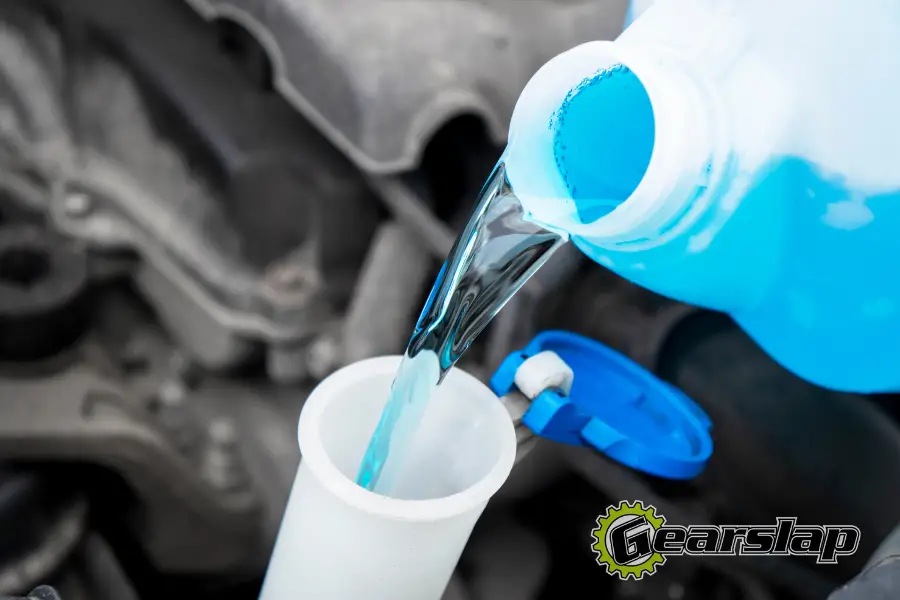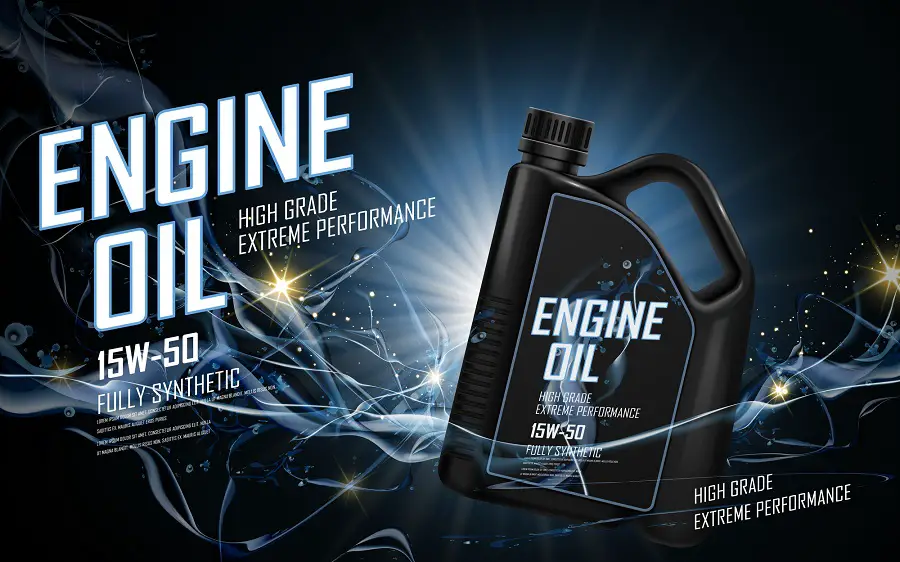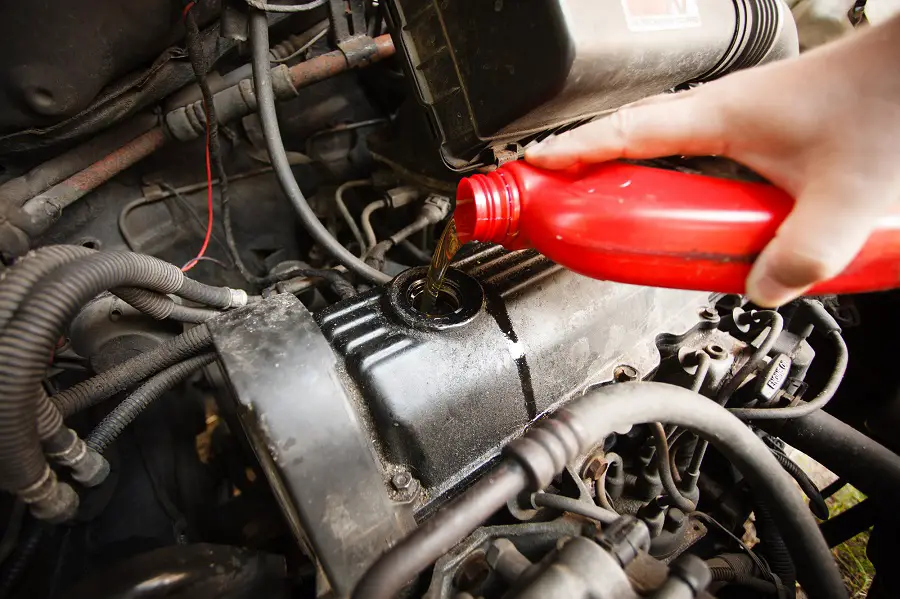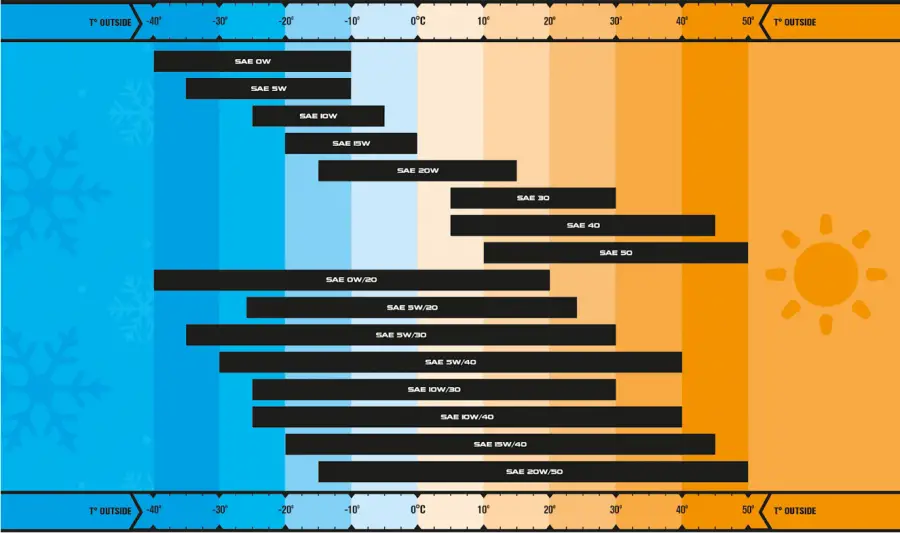At some point, everyone does it. The windshield washer fluid compartment is low, so additional fluid is added that is likely different from what is already being used. But then you wonder, can you mix windshield washer fluid?
The short answer is you can mix windshield washer fluid without causing any damage or danger, but you could be decreasing, if not entirely eliminating, the effectiveness of the fluid to clean your windshield. Let’s look at why this is so.

Windshield Washer Fluid vs. Water: Is it better?
When you buy windshield washer fluid, you are buying a solution that goes beyond plain water that is designed to deal with stubborn messes and road grime.
While there is water in windshield washer fluid, many products also include alcohols like methanol or ethylene glycol which help them clean and some may even include some ethanol or antifreeze with methylated spirits that stop the fluid from freezing in the cold, winter months.
The solution is designed to clean your vehicle’s windshield from road grime, back spray, bugs & even tar without streaks.
Water (even distilled water) without cleaning products or solutions that help break down dirt and grime that can form on a windshield may not clean as well. It also runs the risk of freezing in the winter months, rendering your wiper fluid dispenser useless.
Because of its better cleaning qualities and its effectiveness in winter months, specific winter windshield washer fluid is a better option than water to keep your windshield clean.
So before you grab a gallon of water and pour it into your windshield washer fluid reservoir, think about the benefits you lose by not using the proper wiper fluid.
Can you add tap water or other additives to your windshield washer fluid reservoir?
If you find yourself in a pinch and don’t have gallons of washer fluid lying around, can you use distilled water, tap water or another type of fluid (or additives) to fille up your reservoir?
I’ve wondered this before, especially when on a long road trip in the winter and I’m suffering from bird droppings or back spray on my windshield but I’m miles from a service station. As mentioned above, washer fluid is basically a cleaning solution made from water, alcohol, glycol, coloring and proprietary additives.
You can make your own if you have access to these items. You can fill up your reservoir with mostly water, a cup of alcohol (isopropyl alcohol, not vodka!) and a tablespoon of dish soap to make a decent cleaning solution.
This homemade brew won’t have the water-shedding properties as something with Rain-X Technology, and it will freeze at around 32 degrees Fahrenheit, but it will get you down the road until you can buy a gallon of windshield washer fluid to fill up.
Can You Mix Washer Fluid Brands?
Now that you understand the value of using a windshield washer fluid, let’s review what happens when you mix washer fluid brands.
There are two things that can happen when you mix one type of windshield washer fluid with another (or multiple). First, nothing out of the ordinary happens and your windshield washer fluid continues to work well because the two solutions you mixed are basically the same.
Second, you mix solutions that have different ingredients and your windshield washer fluid does not clean well.
There is nothing dangerous about mixing brands of washer fluids. The chemicals used in the solutions are not volatile and would not combust or present any danger if combined together.
However, some windshield washer fluids are produced using a special process that would render them ineffective if mixed with a different product made from a unique process. As a result, you will notice that the cleaner does not do as good a job thoroughly cleaning your windshield.
Are There Specific Windshield Wiper Fluids for Certain Vehicles?
From the moment you begin shopping for windshield wiper fluid, you realize there are many different brands and types to consider. While vehicle manufacturers may promote certain washer fluids, there are no requirements to use a specific windshield washer fluid for certain vehicles.
The main consideration when purchasing windshield washer fluid is to ensure that you buy a solution that is formulated for the climate in which your vehicle is located.
For example, if your vehicle is located in a warm climate that doesn’t experience freezing temperatures, it may be less important to focus on solution specifics that show the fluid will not freeze. However, if you live in cold climates, it’s important to check the solution label to identify the lowest temperature that the fluid can clean before freezing.
To ensure the solution isn’t vulnerable to freezing, look for cold weather fluid with at least a negative 40 degrees Celcius freeze point.
For those living in warm clients where you don’t think such low temperatures are needed, it’s important to consider that your travels may bring you to colder climates. It’s a good idea to use a solution that will not freeze to ensure you are protected if you travel to a cold area.
What Are the Different Types of Windshield Washer Fluid?
As with other automotive fluids, there are different types of windshield washer fluids available. Some solutions work best to remove bugs, others to clear water more easily from the windshield. The choice of windshield washer fluid you make will depend on how you intend to use it.
The standard washer fluid available at any auto parts store, grocery or even a convenience store is a basic combination of water, methanol and other chemicals. It can handle the basic cleaning job in most areas.
However, in areas where bugs are a particular problem during the warm weather of spring and summer, windshield washer fluids formulated specifically with a bug removal additive work best. The extra cleaners in the solution are designed to handle sticky bugs and guts left on windshields, helping to dissolve and wash them away. However, these solutions don’t work as well in cold climates during the winter months because they typically don’t have the same anti-freezing ingredients.
Washer fluids that include an additive that makes water bead and flow more quickly off the windshield are also available. While this solution is helpful during heavy rains, the chemicals used to create the repellent can cause the solution to leave more streaking on the windshield from wiper blades. As a result, the cleaning elements are less effective in this solution. The most popular solution for this purpose is Rain-X.
Some windshield washer fluids are specifically designed to help with de-icing windshields. These solutions, used in the harshest and coldest winter climates, can endure temperatures of 50 degrees below zero and more. While they help reduce and melt layers of ice, these solutions do not contain as much of a cleaning agent as other solutions.
Can You Mix Different Colors of Windshield Washer Fluid?
Just as there are different types of windshield washer fluids available, there also are different colors on the market. These different colors typically identify different types of fluids, so it is best to review the solution’s label to determine if particular washer fluid is designed for colder climates, bug removal or water beading.
For example, Rain-X windshield washer fluid comes in different types. An orange Rain-X solution is sold as an all-season cleaner that can be used in warm and cool climates. But the purple Rain-X solution is designed specifically for the coldest climates and sold as a de-icer.
Many windshield washer fluids are blue, which is the most common color sold. This is typically a basic cleaner that can be used for cleaning, but it usually does not have special properties that help eliminate bugs or reduce ice.
Just as mixing different types of windshield washer could reduce or eliminate its effectiveness, it is true that mixing different colors of washer fluids can have the same effect. For example, mixing the basic blue windshield washer fluid used for cleaning with a purple Rain-X solution designed as a de-icer will reduce, if not eliminate, the fluid’s anti-freezing and de-icing properties.
Does Washer Fluid Concentrate Work?
Another option you have when it comes to cleaning your windows on the cheap is to buy Washer concentrate that you add to plain water (we recommend something like Qwix Mix Windshield Washer Fluid Concentrate).
This option will usually make around 32 gallons, takes up less space and works just as well as the blue washer fluid you can buy at the store.
You can buy a version that has a water-shedding additive (similar to Rain-X) and if you live in a colder climate you can add some methanol to the fluid to keep it from freezing (this is the one we recommend on Amazon).
We hope that this discussion gives you a clear view of your washer fluid options!






